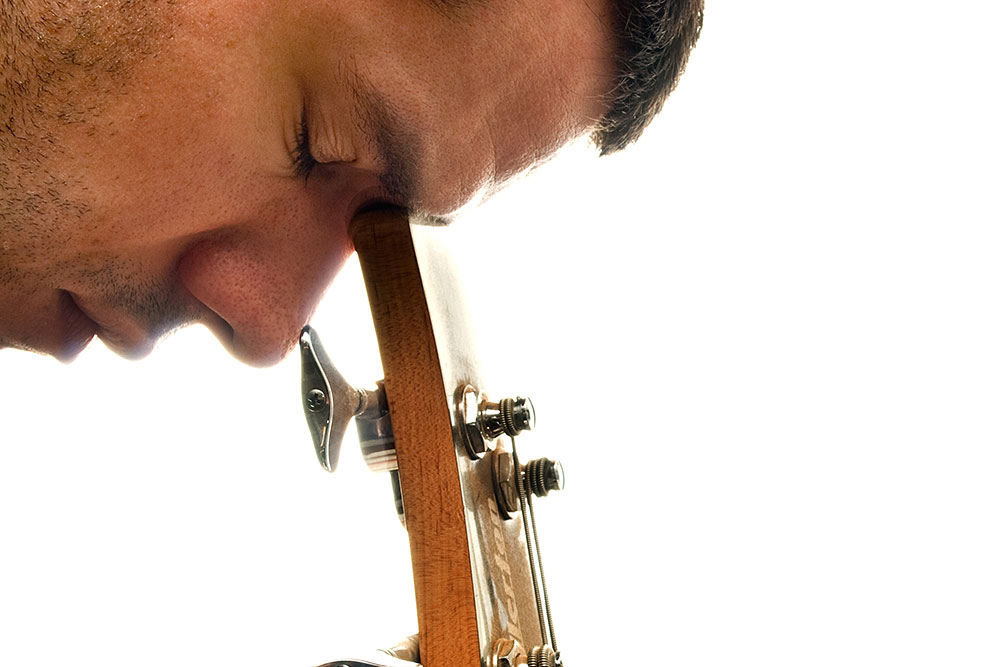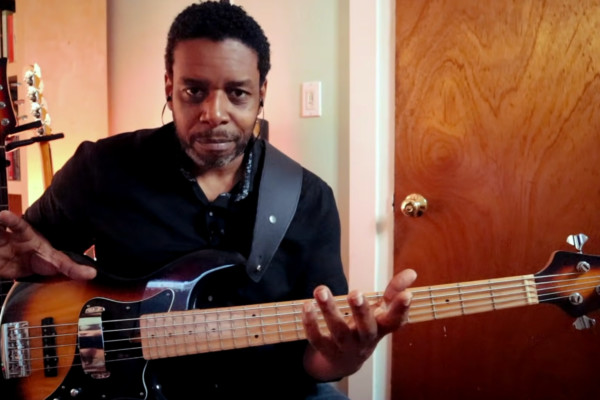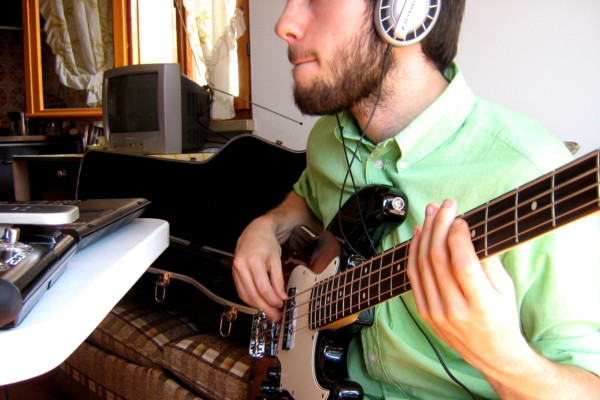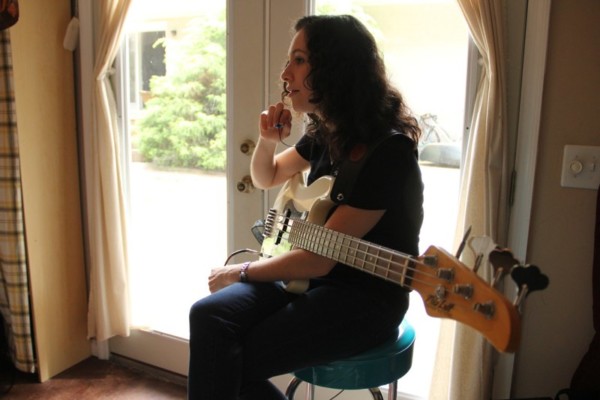Playing How You “Should” Versus How You “Want”

Q: Sometimes I feel like I am supposed to be a certain type of player (especially after watching too many YouTube speed demons). I’ll spend time trying to be that player but then get sidelined by stuff that I actually seem to enjoy more. Then I feel guilty for not shedding the “real stuff” folks online say that I should. Do you ever deal with that?
A: Absolutely. I spent years trying to develop into the player that I thought I was supposed to become, only to realize that I didn’t really even want to play that way. I’ve written about this in one way or another over the years, but it bears repeating. There are a few caveats to what I’m about to say, but my main point is this. Music is your chosen art form. Bass is your chosen medium. Don’t let anyone tell you what kind of artist you should be or how you should be making your art. Period.
Ok… not period… Like I said: caveats.
I’ve had students in years past who used certain aspects of that train of thought as an excuse to avoid the hard work in one way or another. You also can’t get frustrated if there is a small audience for your art, especially if it is far left of center (although, as long as your working thoughtfully, intently, and with passion, I wouldn’t let that deter you).
What is required is that you have a vision and work hard to realize that vision. You can’t just skip the necessary developmental steps and call it “MY process”. We all need to learn some fundamentals and spend countless hours honing our craft.
- What kind of player/musician/creative voice to you want to foster?
- What are the steps necessary to develop that reality?
- Are you devoting enough time to your craft and process to manifest your desired results?
You can’t just skip learning your fretboard, developing your ears, or studying music, get in front of people, play random notes, call it “free” and get frustrated that you can’t build an audience or get a gig. We have to operate in the world as it is (not just how we wish it were; unless we also want to assume the task of making massive changes to the existing landscape we live in).
If we want to be jazz musicians, we need to study the genre, develop an understanding of harmony and how it functions, listen, transcribe, shed, learn how to read (ideally), etc.
If we want to be studio musicians, we definitely need to learn how to read, dig deep with understanding styles, groove creation, melody, how to interpret musical direction, how to get a sound, etc.
If we want to wholly improvise our music, we need to develop our ears, likely study the many dialects of music, become students of dynamics, phrasing, and musical dialogue (mimicking, complimenting, contrasting, use of space, musical aesthetics)…..
If we want to be meat and potatoes groove kings, we need to spend years listening, learning, playing and mastering time-feel and groove creation.
You get the idea. Back to my primary point. If you are practicing bebop lines at 300bpm because YouTube videos made you feel inadequate, but you don’t actually want to play that stuff? I won’t say that you’re wasting your time because you will definitely get something out of it but, you may not get what you actually want out of it. You may also come to realize that you’ve spent years not working on the music that you really care about.
I only ever wanted to be a working musician. I wanted to make a middle-class living by playing music. To that end, I worked on a myriad of different things. It took me years to realize that I actually didn’t really want to be an Olympic gymnast on the instrument but, rather a solid groove-oriented bass player who was good enough to do many other things as well, in order to keep myself working. I also realized that I never really cared about being a great soloist. In fact, I hate taking bass solos. I like holding it down. No judgment, I just like the foundational role of the instrument and have the most fun while locking in with a drummer and existing deep within the body of the music (as opposed to soaring over the top of it).
I also don’t regret the time spent working on the other stuff because I learned so much doing it. It made me a better player. Working on soloing gave me insight into what goes into supporting a soloist. I learned more about harmony than I might have otherwise. It improved my overall chops.
In the end, it’s good and healthy to work on a little bit of everything. It’s all good for you and the more you explore everything, the more accurately you’ll be able to hone in on what it is that you really want out of in the end. That said, don’t feel like you HAVE to do any one thing because somebody told you so, unless it relates somehow to what you want to do with your musical life.
I would definitely encourage you, however, to never shy away without at least dipping your toes into the water and seeing what you might be able to draw from it.
EVERYTHING in your life relates to EVERYTHING else in your life.
How you do anything is how you do everything in life (IMHO).
So be open-minded and explore new possibilities while also thinking long and hard about what YOU want YOUR role to be in the musical world. Nurture and foster your own place in the art form. Be fearless, be driven, be focused, be motivated, but also be open, explorative, receptive to new information and curious.
In short, if you’re not feeling the work you’re doing? Do something else. Just never stop ‘doing’. Never stop learning and exploring the music you want to make.
Have a question for Damian Erskine? Send it to [email protected]. Check out Damian’s instructional books, Right Hand Drive and The Improviser’s Path.



